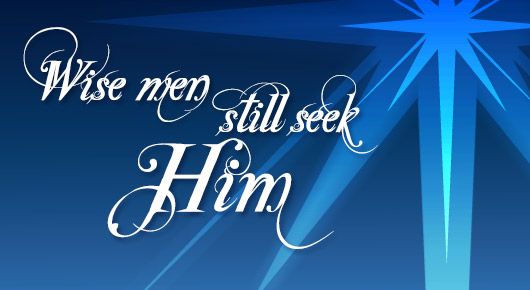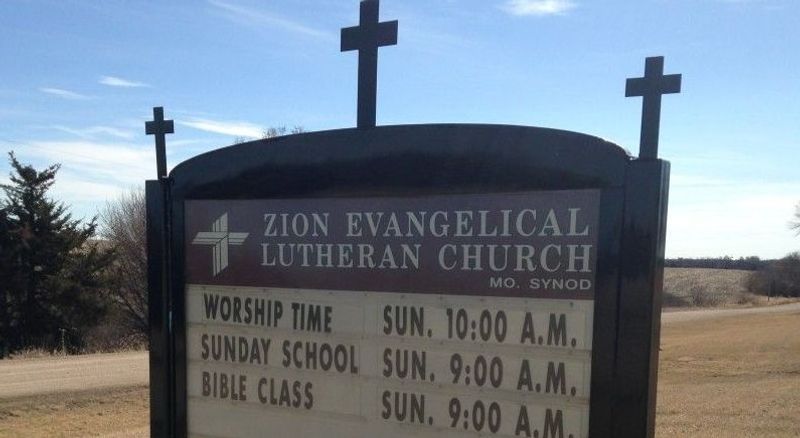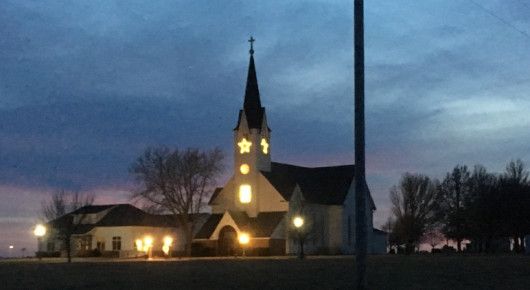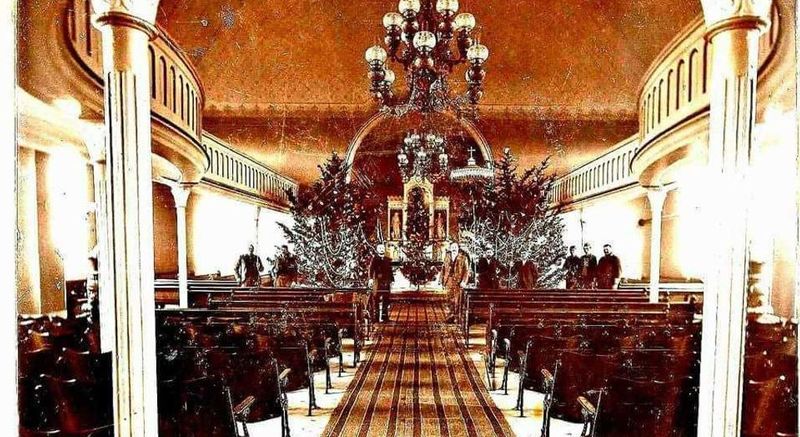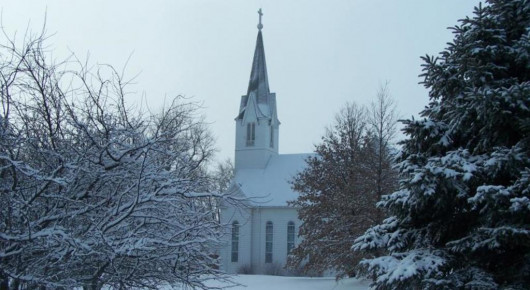For Many Years, Oh God of Grace!
"The purpose of this congregation is to share the true Gospel of our Lord and Savior Jesus Christ, throughout our membership, our communities and the world."

Zion is....a congregation of The Lutheran Church Missouri Synod. The LCMS was chartered in 1847 and Zion joined Synod in 1880.
Zion was chartered in 1873 and is one of the oldest continuous congregations of the LCMS between here and the west coast.
 Zion is....a Christ centered, Bible believing congregation. Based on the tenets of the Lutheran Reformation - Grace Alone, Faith Alone and Scripture Alone - Zion's focus is always the blood that Christ has shed for us.
Zion is....a Christ centered, Bible believing congregation. Based on the tenets of the Lutheran Reformation - Grace Alone, Faith Alone and Scripture Alone - Zion's focus is always the blood that Christ has shed for us.
Zion is....a congregation committed to Christian education and youth. Even before having their first pastor, classes were being held in a sod cabin.
Zion is....a rural congregation with great diversity. Locally, Zion draws members from Aurora, Bradshaw, Hampton, Henderson, Hordville, Grand Island, Marquette, Polk, Sutton and York. The diversity of the congregation is reflected in the occupational pursuits of Zion's members.
Zion is....a mission minded church having shared members to start Immanuel, Polk: Salem and St. Peter, Hampton; Cross of Christ, Aurora and having helped St. Paul & Central City. Mission starts were considered in Bradshaw and Sutton. Mission groups at Zion have been active in Gospel outreach and support as well as social ministry.
ZION EVANGELICAL LUTHERAN CHURCH OF THE UNALTERED AUGSBURG CONFESSION 1873-2016
SPANNING THREE CENTURIES IN MISSION AND MINISTRY
PEOPLE OF
CHRIST
WITH A MESSAGE
OF
HOPE
Lutheran Center for Religious Liberty (LCRL) The Lutheran Center for Religious Liberty asks that you would commit to pray for the members of the United States Congress. In order to pray for your members by name, please use https://www.congress.gov/members/find-your-member (enter your address to find your specific members). www.LCRLFreedom.org.
On the Jan 14 podcast of The Liberty Action Alert, Dr. Seltz and his guest, Father Frank Pavone—National Director of Priests for Life and Missionaries of the Gospel of Life, and a compassionate defender of the pro-life message in the public square—talk about how free speech, free association, and religious liberty allow a pro-life culture to grow organically—through persuasion, compassion, and truth—rather than coercion. They also discuss how constitutional victories, truthful speech, and compassionate alternatives combine to shift hearts, minds, and behavior—leading to fewer abortions and a more humane society. www.LCRLFreedom.org.
The Liberty Action Alert for January 7-Dr Seltz and his guest Simon Hankinson, Senior Research Fellow in the Border Security and Immigration Center at The Heritage Foundation., talk about his book, “THE TEN WOKE COMMANDMENTS YOU MUST NOT OBEY.” It is a must-read for Christians engaged in today’s culture war, equipping believers to recognize and reject modern ideologies that demand the denial of truth, faith, history, and biological reality. With clear arguments and practical resources, the book empowers Christians to stand courageously for biblical truth, free speech, and moral clarity in an increasingly hostile culture. www.LCRLFreedom.org.
The Founding Fathers saw religious liberty as essential to a free society, shaping both legal protections and cultural values. Their views varied, but they generally agreed that freedom of conscience was a fundamental right that must be protected from government interference.
The Founding Fathers viewed the right to life as the first and most essential unalienable right. The Founders pledged their lives, their fortunes, and their sacred honor in support of the Declaration and the cause of American independence, including the right to life. As a result: Nine signers died from wounds or hardships caused by the war, one-third lost their fortunes, and all 56 signers endured suffering rather than recant their position. The Lutheran Center for Religious Liberty advocates for the right to life for all people, regardless of age or stage of life. www.LCRLFreedom.org
LCMS Foundation: We live in a “I can do it myself” culture. That has been cultivated by our access to technology. Yet the question is, “Do I need help to create my Christian estate plan?” This month we consider that your estate plan represents the biggest collection of decisions with far more impact than any others in life. To begin with, a good estate plan will include a good attorney, who can take your goals and put them down into carefully crafted, precise documents. Without an attorney, you risk allowing your will to be contested, or making mistakes that could leave something out you wished to do. Your LCMS Gift Planning Counselor can get you ready to meet with your attorney. Contact Craig Stirtz at 402-616-0312 or craig.stirtz@lfnd.org.
Zion, Hampton's History Featured on Nebraska Public Media Podcast
In the 1920s, a Nebraska law made teaching German to children illegal. Soon after the law went into effect, Robert T. Meyer, teacher of Zion, Hampton was arrested, charged and convicted. Rather than paying a fine, he fought. Meyer’s defiance rippled through the United States legal system for years to come. You can listen to a story about this on “Once Again,” a new history podcast from Nebraska Public Media at this link.


